READING NOOK: Wondering What to Read Next?
We can help … here are some suggestions:
“Here is a book to nourish the spirit. The Songs of Trees is a powerful argument against the ways in which humankind has severed the very biological networks that give us our place in the world. Listen as David Haskell takes his stethoscope to the heart of nature – and discover the poetry and music contained within.”
―Review by Peter Wohlleben, author of The Hidden Life of Trees
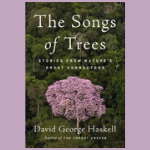
The Songs of Trees: Stories from Nature’s Great Connectors
by David George Haskell, Author
*Winner of the 2018 John Burroughs Medal for Outstanding Natural History Writing
“When Indigenous Peoples meet one another for the first time it’s as if we’ve always known each other. Gleb’s powerful and knowledgeable book captures that essence and the intimate ties we have to our Mother Earth. This book is like reading my own ancestry. We say that ‘all things are connected’ and these stories show us how related we all are.”
―Review by: Patricia Cochrane, Inupiat Eskimo, Executive Director Alaska Native Science Commission
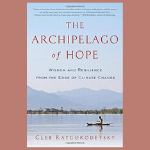
The Archipelago of Hope: Wisdom and Resilience from the Edge of Climate Change
by Gleb Raygorodetsky, Author
*National Book Award Winner
“People are best able to change their ways when they find two things at once in nature: something to fear, a threat they must avoid, and also something to love, a quality…which they can do their best to honour. Either impulse can stay the human hand, but the first stops it just short of being burnt or broken. The second keeps the hand poised, extended in greeting or in an offer of peace. The gesture is the beginning of collaboration, among people but beyond us, in building our next home.”
–After Nature, by Jedediah Purdy
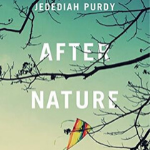
After Nature: A Politics for the Anthropocene
by Jedediah Purdy (Author)
An Artforum Best Book of the Year
A Legal Theory Bookworm Book of the Year
Kirkus, Review: Purdy examines the growing awareness of the relationship between humans and other species, which could create “a Copernican revolution in ethical imagination”. A profound vision of post-humanistic ethics.
“We should resist such inertial thinking; indeed, we should urge its opposite – deep time as a radical perspective, provoking us to action not apathy. For to think in deep time can be a means not of escaping our troubled present, but rather of re-imagining it; countermanding its quick greeds and furies with older, slower stories of making and unmaking. At its best, a deep time awareness might help us see ourselves as part of a web of gift, inheritance and legacy stretching over millions of years past and millions to come, bringing us to consider what we are leaving behind for the epochs and beings that will follow us.”
― Robert Macfarlane, Underland: A Deep Time Journey
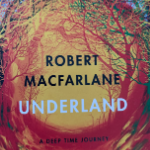
Underland: A Deep Time Journey
by Robert Macfarlane (Author)
National Bestseller • New York Times “100 Notable Books of the Year” • NPR “Favorite Books of 2019” • Winner of the National Outdoor Book Award.
NPR, Barbara J. King, Review: Macfarlane takes us on an extraordinary journey into our relationship with darkness, burial, and what lies beneath the surface of both place and mind.
“There’ve been times I’ve been really negative looking forward,” says Joseph Williams, a Swinomish tribal senator with five children. “Things are looking pretty bleak, especially for our salmon.” But these projects, he says, are proving inspirational to the next generation, helping to bring people together. “As long as we keep our kids excited about taking care of our environment, things remain optimistic,” he says.
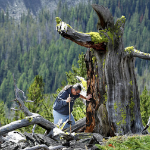
How Native Tribes Are Taking the Lead on Planning for Climate Change
By Nicola Jones (Author)
*Photo credit: Chip Somodevilla/Getty Images
Yale Environment 360, Article: “With their deep ties to the land and reliance on fishing, hunting, and gathering, indigenous tribes are especially vulnerable to the impacts of climate change. Now, native communities across North America are stepping up to adopt climate action plans to protect their way of life”.–
